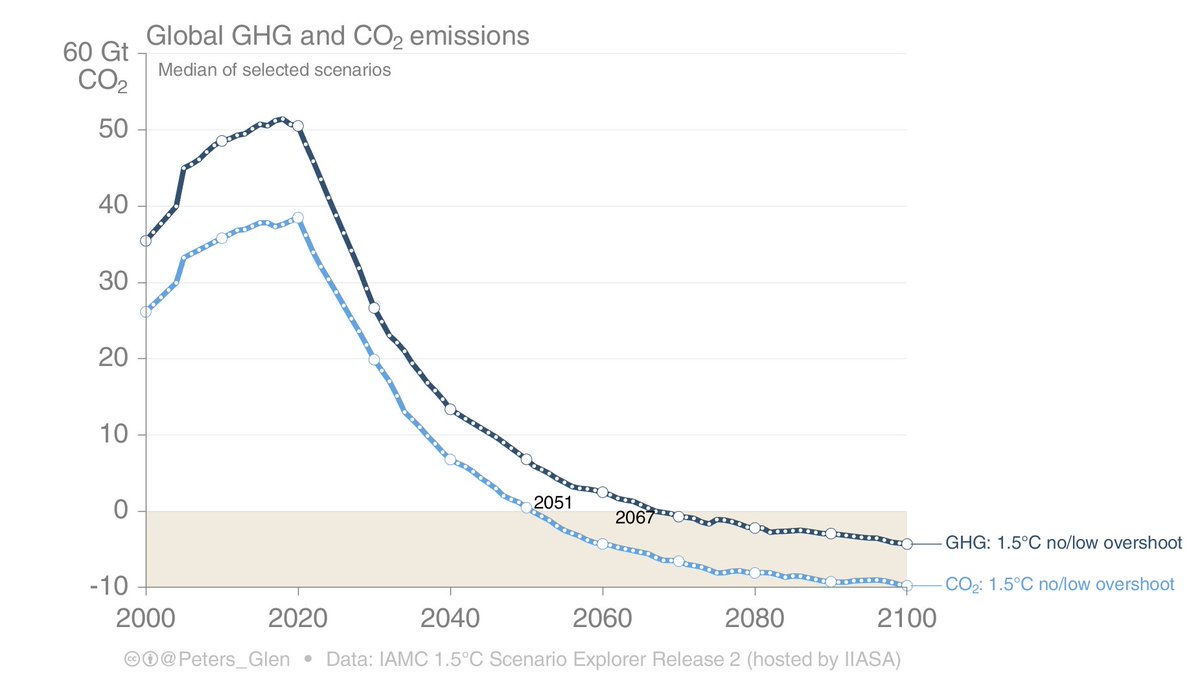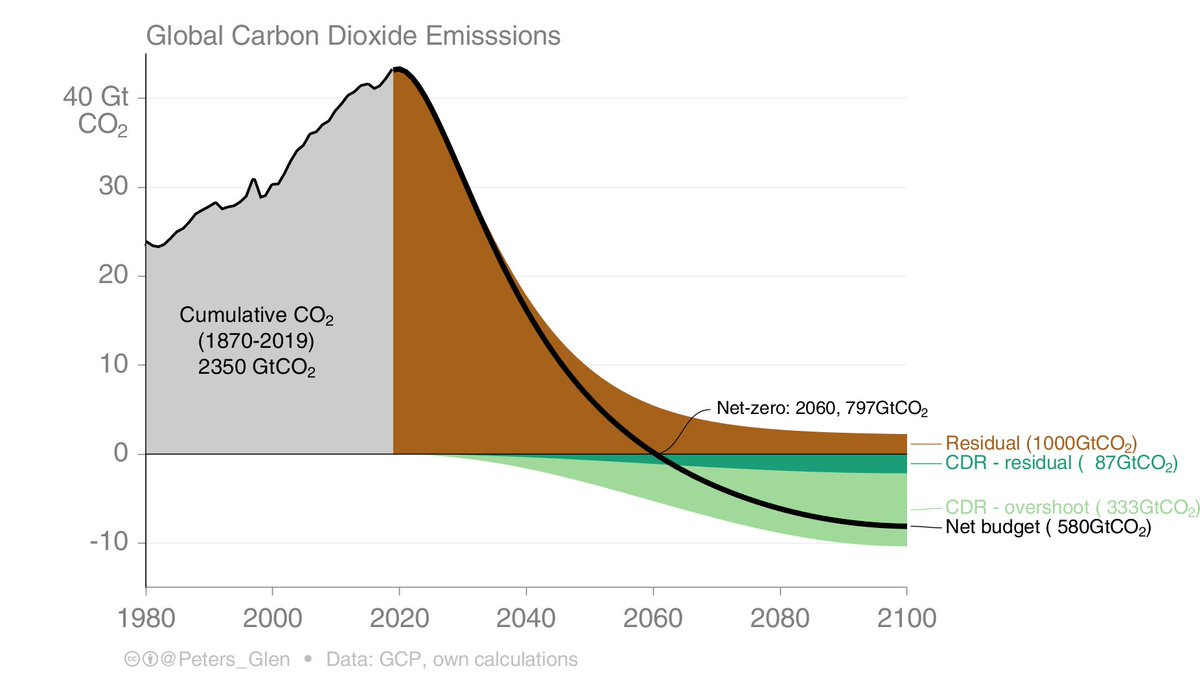
What is net-zero? Is it carbon neutral? CO₂ or GHG?
Did you know that 1.5°C scenarios reach net-zero CO₂ emissions around 2050, but net-zero GHG emissions around 2070?
1/
Did you know that 1.5°C scenarios reach net-zero CO₂ emissions around 2050, but net-zero GHG emissions around 2070?
1/

For a likely below 2°C scenario, the net-zero years are shifted back about 20 years.
In fact, many likely below 2°C scenarios don't require net-zero GHG emissions until after 2100.
2/
In fact, many likely below 2°C scenarios don't require net-zero GHG emissions until after 2100.
2/

And why "net" and not just zero?
That is because it is hard to get all emissions completely to zero, & so some carbon dioxide removal is needed to clean up any remaining emissions.
The scale is important. How much CDR is possible?
3/
That is because it is hard to get all emissions completely to zero, & so some carbon dioxide removal is needed to clean up any remaining emissions.
The scale is important. How much CDR is possible?
3/

It is possible to have scenarios with much, much less Carbon Dioxide Removal, though very few of these are found in the scenario literature. We have a biased view!
Independent of the amount of carbon dioxide removal, rapid short-term emission reductions are essential.
4/
Independent of the amount of carbon dioxide removal, rapid short-term emission reductions are essential.
4/

But we have to be careful people understand what net-zero is, otherwise we may "offset" our way to really high emissions & just create more climate problems.
Net-zero requires that you stop burning fossil fuels or emitting CO₂.
5/
Net-zero requires that you stop burning fossil fuels or emitting CO₂.
5/

That is a quick summary of my presentation on #NetZero.
Starts at 0830, but most will be in Norwegian. I will be in English at about 0845.
#klimafrokost
6/6
klimastiftelsen.no/arrangement/kl…
Starts at 0830, but most will be in Norwegian. I will be in English at about 0845.
#klimafrokost
6/6
klimastiftelsen.no/arrangement/kl…
• • •
Missing some Tweet in this thread? You can try to
force a refresh















